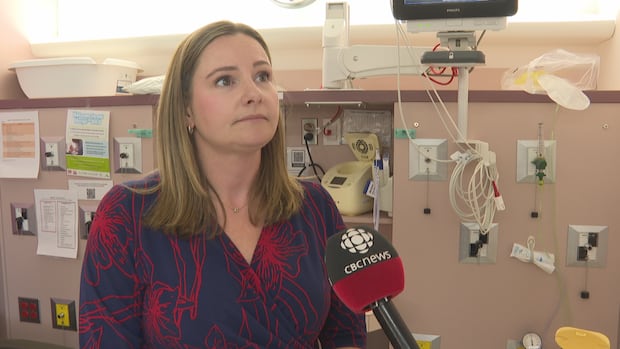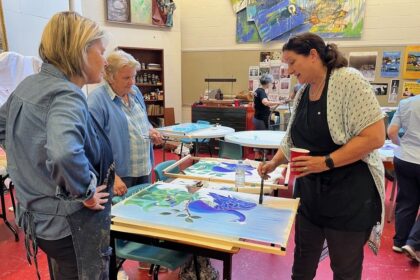PEIThe Queen Elizabeth Hospital has welcomed a new neonatologist into its ranks, strengthening care for the Island’s tiniest patients. More neonatologists on the Island means more babies can get care closer to homeRyan McKellop · CBC News · Posted: Sep 05, 2025 3:47 PM EDT | Last Updated: 1 hour agoVery young sick babies are now getting more care at their home hospital on P.E.I. Here’s why.The Queen Elizabeth Hospital in Charlottetown has hired a second neonatologist in its intensive care unit for babies. That kind of specialist takes care of sick and premature babies, and doctors say the new addition will help get more care to the tiniest patients. CBC’s Connor Lamont has more.The Queen Elizabeth Hospital has welcomed a new neonatologist into its ranks, strengthening care for the Island’s tiniest patients and allowing more babies to stay on the Island for their care, rather than being sent to off-Island hospitals. “It’s quite a privilege to be able to come and join the team here,” said Dr. Gillian MacLean, who has been working in the Charlottetown hospital since August. She said she chose P.E.I. due to the abundance of opportunity in the province — including the new medical school based at UPEI.”[It] was another big draw for me to come and continue my work in medical education,” she said.Dr. Gillian MacLean’s arrival at the QEH’s neonatal intensive care unit will allow it to expand the amount of care provided, meaning some families won’t have to send their baby to another medical facility, like the IWK Health Centre in Halifax. (Connor Lamont/CBC)A neonatologist is a pediatrician who specializes in the care of ill, premature or high-risk newborns. “Being able to care for a newborn and meeting their parents at what for some people is supposed to be the most exciting day of their life, can sometimes turn into the most scary when I show up in the room to help their baby,” she said. That is a huge privilege, to be able to be there and provide care and help guide families on their journey until their baby is well enough to take home.— Gillian MacLean”I think that is a huge privilege, to be able to be there and provide care and help guide families on their journey until their baby is well enough to take home.”MacLean said most of the patients they see in the QEH’s neonatal intensive care unit (NICU) are born preterm, but not all. “We do [also] take care of babies who are born full-term who are born sick,” she said.”A lot of the time we don’t know that a baby is going to be born sick, so we’re called to attend the birth and provide care as soon as they’re born.”Freeing up hands, and expansion of careDr. Beth Ellen Brown was the sole neonatologist at the QEH for many years, and said having MacLean join the team has already made a difference. ‘I really think, speaking for myself, but also on behalf of the entire team that’s behind me here, we have the best job in the world,’ said Dr. Beth Ellen Brown, a neonatologist at the QEH. (Connor Lamont/CBC)”One of the biggest things that we are doing is moving the meter on the gestational age that we care for in hospital. So that means going towards keeping babies who are born 11 weeks earlier, at 29 weeks gestation,” she said.”We’re hoping to move there fairly quickly within the next number of weeks.”Before, patients born before this time period would have to be sent to the IWK Health Centre in Halifax.Brown said there is a new follow-up program that the two neonatologists will work on, where they will each see a subset of NICU patients to allow for work-life balance while covering the need for 24/7 care in the NICU.She said that in a typical year, between 900 and 1,000 babies are born at the QEH. Out of those, between 300 to 400 end up in the NICU, which Brown said was a lot of babies for one person to supervise medically.Before MacLean came, Brown had to be available at all times to support her pediatric and obstetrical colleagues. “Now that’s 50 per cent of the time, so that’s really wonderful,” she said. “And that means that there’s, you know, more time to do other work, like advocacy work — other really important things that maybe aren’t happening day-to-day in the NICU, but still are really impactful for the health journey of babies.”ABOUT THE AUTHORRyan McKellop is a graduate of the Holland College Journalism program and a web writer at CBC P.E.I.With files from Connor Lamont
Charlottetown hospital’s newest neonatologist helps expand services for tiniest patients











